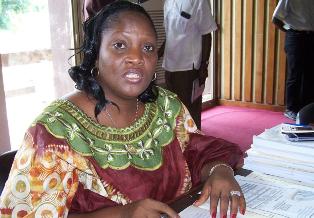Ebola: Hailing international interventions
Liberia is one of several countries in the West African sub region battling the current Ebola outbreak, which is unprecedented both in the number of cases and in its geographic scope. Guinea, where the current outbreak first emerged in West Africa, Sierra Leone and Nigeria are the three other countries hard hit by the deadly disease; and there are also fears that the disease has spread to Togo.
The Ebola virus, which starts off with flu-like symptoms and often ends with horrific hemorrhaging, had as of July 23 infected 1,201 people in Sierra Leone, Guinea and Liberia, and killed an estimated 672 since this rainy season, according to the numbers from the World Health Organization. The social and political factors contributing to the current disaster, may also be of serious concern. Owing to the fact that this outbreak is the first major one in the region, most health workers lacked the experience or training in protecting themselves or caring for suspected Ebola patients. The inability of individuals to avoid the disease or seek medical advice or
Attention is attributed to social stigmas and lack of awareness. As a result of the foregoing, the problem of direct contact with dead bodies of Ebola victims continue to contribute to the wide spread of the disease not only in Liberia, but the West African sub region. And the alarming rate at which the disease is spreading may have raised international concerns, especially from the World Health Organization or WHO, which convened a one-day Ebola Summit in the Guinean Capital, Conakry two weeks ago.
A recent WHO assessment here in Liberia identified problems with tracing patients’ contacts with other people, persisting denial and resistance in a number of communities, as well as issues with inadequate measures used to prevent and control infections, weak data management, weak leadership and coordination in the three countries, according to a statement issued by the WHO on July 19, 2014.
Considering the serious danger the spread of the disease poses not only to the West Africa region, but the continent at large, the WHO recently declared the current outbreak an ’ International Public Health emergency.’ Even though there may have been some doubts about the pronouncement, in terms of practical actions, the WHO is now translating these spoken words- International Public Health Emergency’ into immediate actions.
Already, the organization spearheaded the launch of a US$100m- international fund drive, while the World Bank Group committed US$200m to help contain the spread of the disease. Among others initially contributing financially to the effort are the Federal Republic of Nigeria, the Economic Community of West African States or ECOWAS and African Union or AU.
The European Commission has already committed 11.5 Euros, while the United States Government, through its Agency for International Development or USAID, committed US$14.5m and 50-Public Health experts, some of whom have arrived in Liberia, to the battle against the Ebola virus disease. The People’s Republic of China and Canada also contributed medical equipment and drugs.
[bsa_pro_ad_space id=1]
It is no secret that these commitments and contributions are only the direct result of the ties and corporation subsisting between our nation-Liberia and the international and multilateral organizations and countries- efforts that must be hailed. As we express heartfelt gratitude to these nations and institutions for their timely interventions, it is truly incumbent upon us-the people and government to help these intervening institutions and nations to continuously help ourselves by exhibiting the highest degree of commitment, openness and sincerity in raiding our country of this deadly and disastrous outbreak.
In so doing, funds and materials for the fight against the Ebola disease must primarily prioritize health workers-nurses, physician assistants, as well as doctors, among others, in terms of protective gears, incentives and attractive salaries so that they provide proper care for those infected by the Ebola virus, as well as others suspected of the virus. The issue of responding to calls from the various communities across the country must be very effective to reduce the spread of the disease. We can all be assured that with these in place, victory is very certain over the Ebola outbreak in Liberia and the region.




















